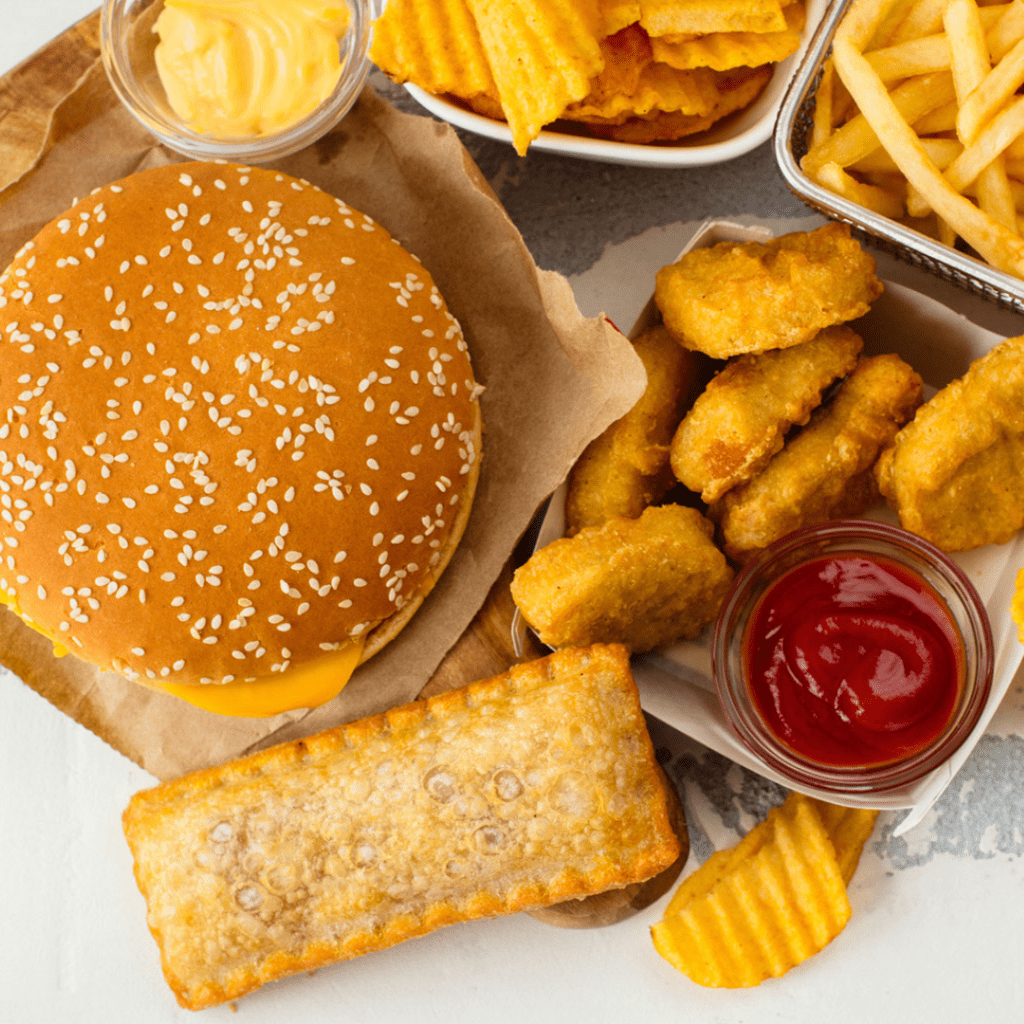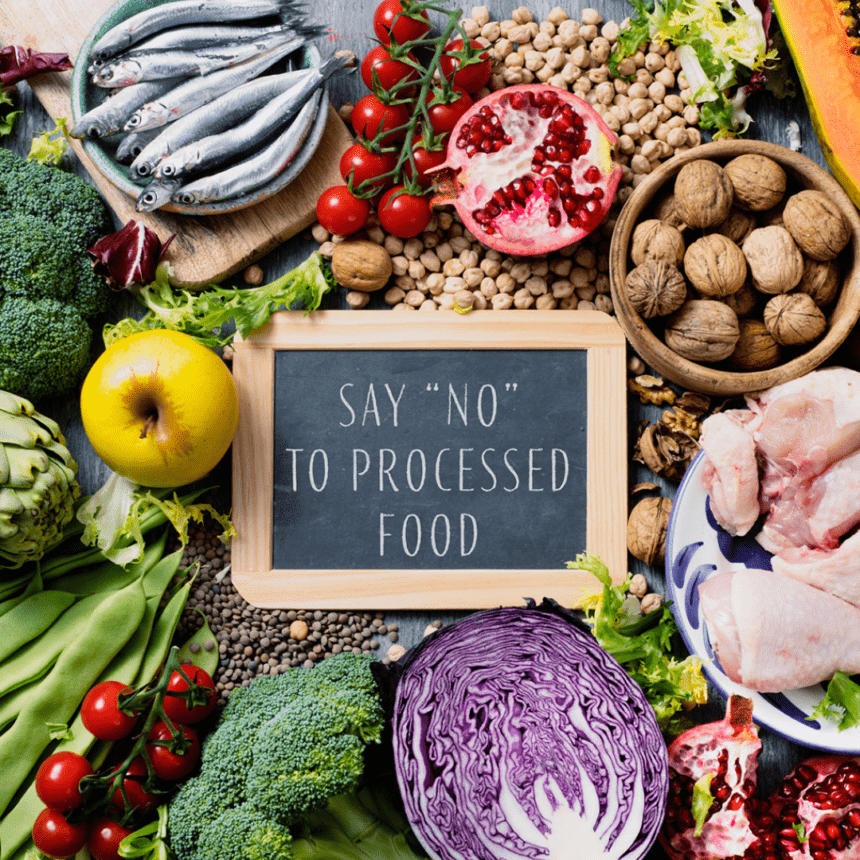Want to ensure optimal eye health and maintain clear vision? Your dietary habits play a pivotal role in maintaining eye health. In fact, there is a strong correlation between diet and eye health.
To keep your eyes healthy, incorporating antioxidant-rich foods such as leafy greens, berries, and fatty fish into your diet can help protect your eyes from damage caused by free radicals.
Fatty fish like salmon are also a good source of Omega-3 fatty acids, which can reduce the risk of age-related macular degeneration and dry eye syndrome.
On the other hand, consuming processed and high-sugar foods can increase the risk of eye problems, such as cataracts and diabetic retinopathy.
It’s time to make a change! Incorporate a diet filled with vitamins and nutrients to support your eye health and keep your vision clear. Your eyes will appreciate it
1. Trans Fats:

Foods high in trans fats, such as fried foods, baked goods, and processed snacks, can increase the risk of developing age-related macular degeneration.
This is due to the fact that trans fats are harmful fats that increase blood levels of bad cholesterol, which causes plaque to accumulate in the blood vessels. This plaque can clog the blood arteries that supply the eyes, harming them and raising the possibility of developing eye illnesses.
Trans fats have also been connected to oxidative stress and inflammation in the body, which both eventually contribute to eye impairment.
2. Refined Carbohydrates:

Simple carbohydrates or processed foods, such as white bread, pastries, and sugary drinks, can increase blood sugar levels and contribute to the development of diabetic retinopathy. Blood vessels may be harmed by high blood sugar levels, which can result in leaks or blockages that impair vision.
3. Saturated Fats:

Consuming too much saturated fat, found in fatty meats and dairy products, can increase cholesterol levels and increase the risk of developing cataracts.
High cholesterol levels can also cause plaque to accumulate in blood vessels, including those in the eyes, which could obstruct blood flow and cause visual issues.
4. Salt:

A high salt intake increases blood pressure, leads to blood vessel damage, a buildup of fluid beneath the retina, and blocks blood flow to nerves, causing blurred and distorted vision.
5. Alcohol:

Excessive alcohol consumption can lead to vision problems. Alcohol consumption over a long period of time increases the risk of diseases such as cataracts, age-related macular degeneration, and optic neuropathy.
Overindulging in alcohol can harm the blood vessels in the eyes and cause fluid to accumulate, which can cause vision loss and blurriness. Alcohol can also damage nerves and raise blood pressure, which compromises eye health even more.
It’s important to maintain a balanced diet, but limiting or avoiding these foods can help keep your eye health in check and reduce the risk of developing vision problems such as cataracts, AMD, dry eye disease, and diabetic retinopathy.

